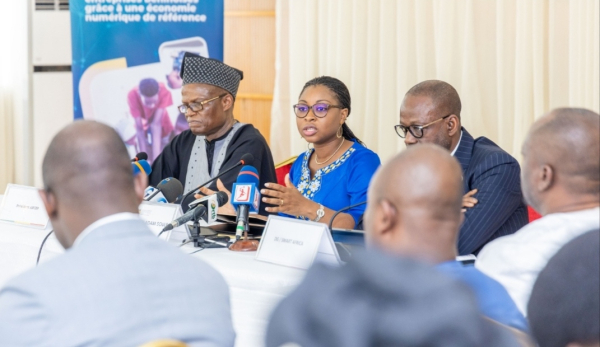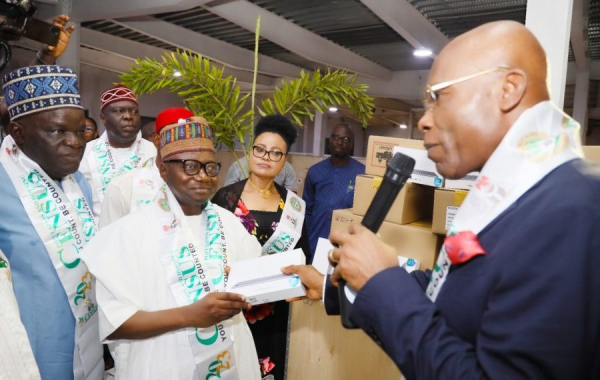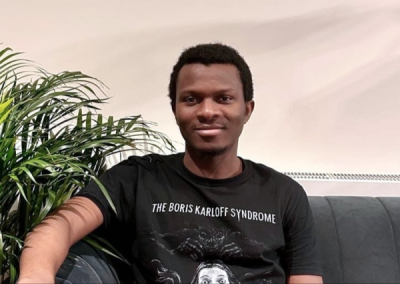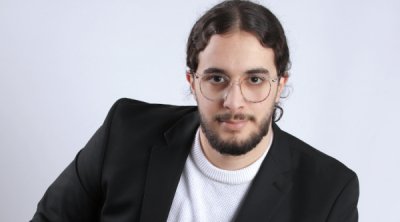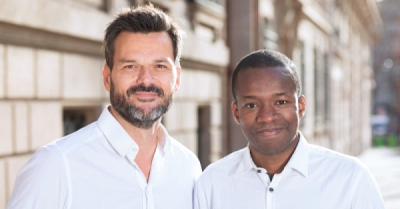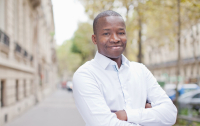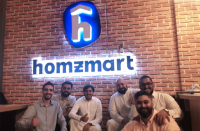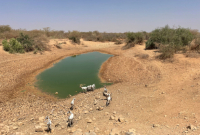In recent years, Benin has implemented a number of digital projects to facilitate access to basic services. This year, it intends to pursue its digital transformation.
Last Friday, Benenise Digital Minister Aurelie Adam Soule Zoumarou presented the 2023 agenda of the Ministry of Digital Economy. According to the official, "impact, resilience strengthening, and upscaling" will be the keywords in the digital sector in Bein this year.
Before the national assembly, Aurelie Adam Soule Zoumarou defended a 2023 budget of over XOF31 billion (US$49.2 million) for projects including the implementation of the newly-approved National Artificial Intelligence and Mega Data Strategy (SNIAM), the deployment of digital and e-service centers and the creation of a legal framework that will encompass the digital law, the digital broadcasting law, and the data protection law.
The agenda also includes the deployment of more mobile cell sites and the launch of 5G trials. Aurelie Adam Soule Zoumarou also announced two major reforms, namely the mutualization of efforts for the construction of passive infrastructures and the inclusion of basic digital training in conventional and certifying education programs.
The Ministry will also focus on pursuing the modernization of the state TV ORTB, launching the new state TV A+ Benin, establishing an organizational framework for the advertising industry, and the launch of digital terrestrial television with the marketing of TV decoders.
The 2023 agenda also plans for the extension of mobile coverage in rural zones and the deployment of digital community centers in eligible communities where the centers are not yet deployed.
Samira Njoya
Seventeen years after the 2006 population census, Nigeria wants to conduct its fifth census. For this edition, the country is betting on local tech firms for the supply of its digital equipment.
The Federal Government of Nigeria, through the National Population Commission (NPC), recently signed a groundbreaking US$184 million contract with Zinox Technologies, a local tech company based in Lagos. Under the contract, the local tech firm is to supply technology components and other accessories for the population scheduled for next March-April.
"It is a privilege for the Federal Government to consider us among many other companies in the world. They know we have the capacity. We are deploying all our resources to make sure it is successful," said Kelechi Okonta, CEO of Zinox Technologies.
Last February 4, Zinox supplied the NPC with about 100,000 of the PDAs needed for the census.
Between 2006 and 2010, the same company worked with the government for the voter registration process because the foreign tech companies hired by the Independent National Electoral Commission (INEC) were unable to deliver the equipment ordered in time.
At the time, it used its Z-Pad smart device (which INEC is still relying on) to lay the foundation for Nigeria's digital democracy. The successful execution of the US$200 million-plus INEC contract in 2010 positioned Zinex as a strong and skilled local firm.
Samira Njoya
He is a passionate tech entrepreneur who wants to leverage technologies to build a better Africa. Through his startup Clio, he provides businesses with the infrastructure needed to efficiently manage their teams.
Joshua Oguntade (photo) is a Nigerian impact entrepreneur and the founder-CEO of software development firm Clio.
Formerly known as Onboardly, Clio was founded in 2021. It provides fast-growing companies with best-in-class tools to manage employees and build great company cultures. It aims to help companies put their employees first by providing a platform that helps them take care of the tasks necessary for an efficient work experience.
It was launched after Joshua Oguntade and his teams noticed companies were still using fragmented processes and tools in their operations, wasting time and money.
The tech entrepreneur thus developed a modern human resources management infrastructure that manages recruitment, payroll, benefits, integration, HR, and IT tasks. Several notable companies, including Bumpa, Float, and Mono, use Clio's solution and appreciate its efficiency.
In 2018, Joshua had already co-founded Pennysmart, a convenient and automated online/offline savings and wealth management service for Africans. He entered the professional world in 2015, joining the SMS delivery platform as a software engineer.
From 2016 to 2018, he completed an entrepreneurship program developed by MEST Africa, and in 2020, he worked as a product and compliance manager for Flutterwave, a fintech company that builds payment infrastructures to connect Africa to the global economy.
Melchior Koba
The young computer scientist founded his fintech startup Gwala, in 2022, after his studies at the University of Stanford. With that startup, he helps firms boost productivity and retain talent.
Mossaab Abaouz (photo) is a Moroccan entrepreneur and alumnus of the University of Stanford where he studied computer science. In 2022, when he returned home after his studies, he founded Gwala, a fintech startup, which he is leading as the CEO.
His fintech startup aims to drive financial wellness by revolutionizing salary payment and helping companies increase employee productivity, retain talent, maintain healthy cash flow, and reduce human resource workloads.
Before launching Gwala, he co-founded several D2C e-commerce platforms between 2016 and 2018. From February 2020 to January 2021, he worked as an instructor and recruiter for Addictest, an ed-tech platform that helps students get admission into international universities, in the U.S mostly.
In 2021, the tech entrepreneur made a stint, as a research assistant, at the University of Stanford. He notably "developed an original algorithm that fused multiple Convolutional Neural Networks to increase the accuracy of image classification models by an average of 3%."
Recently, his startup secured an undisclosed amount of pre-seed financing from several investors including Ingressive Capital's Maya Morgan Famodu. The financing will be used to further develop Gwala and hire new talents to support growth.
"We’re thrilled to close this pre-seed funding round and to have the support of such a passionate group of investors. This investment will enable us to continue our mission of empowering Moroccans with the financial freedom they deserve and to build the future of work in Morocco," Abaouz said.
Melchior Koba
The second fund comes four years after the close of the first. Like the first, it is also focused on African startups but the envelope raised is larger.
US VC firm Partech announced, Tuesday (Feb 7), the first closing of Partech Africa II, its second investment fund focused on Africa. The EUR245 million raised will "support entrepreneurs who use a combination of technology and excellent operations to address some of the hard-to-solve but very large opportunities the continent offers across all sectors."
“We had set an ambitious goal for Partech Africa II at €230M, with a hard cap at €280M, essentially doubling the size of our first fund. We overreached it with a closed amount already above the target fund size," said Cyril Collon (photo, left), General Partner at Partech Africa.
The second fund is backed by leading development finance institutions, as well as institutional and commercial investors. It will pursue the first fund's strategy, which is to identify and support early-stage and growth-stage start-ups on the continent. It will invest between US$1 million and 15 million to support the targeted entrepreneurs.
To date, Partech's portfolio includes 17 startups in 9 African countries now operating in 27 countries across the continent. They include TradeDepot, Yoco, Wave, Nomba (formerly Kudi), Gebeya, ChatDesk, Reliance Health, MoneyFellows, TerraPay, Tugende, and Almentor.
Samira Njoya
The backbone, launched in 2019, is financed by the African Development Bank and the European Union to the tune of XAF22 billion.
Last Monday, the Central African Republic welcomed the CAR component of the Central Africa Fibre-Optic Backbone Project, which aims to provide broadband internet in the whole country.
According to President Faustin Touadera (photo, left), the efforts made by the government and its partners are aimed at creating an enabling environment in the field of telecommunications in the Central African Republic. "This new project, which is already operational, will first reduce internet costs and then create new jobs," he said.
The CAR component of the Central Africa Fibre-Optic Backbone Project, launched in 2019, is co-financed by the African Development Bank (AfDB) and the European Union to the tune of XAF22 billion (US$36 million). It interconnects the Central African Republic, Congo Brazzaville, and Cameroon. The project includes 935 kilometers of optic fiber network and 11 relay stations that are being built in Bangui and some strategic towns in the North-West.
According to the Central African government's web portal, the newly deployed backbone will increase tax revenues, reduce the cost of economic and social transactions, reduce the digital isolation of rural areas, promote regional integration, and revitalize the social pact with new employment opportunities for the youth.
For François-Xavier Decopo, coordinator of the CAR component, the next stage is the sales of fiber optic capacity to operators. "In September, an operator will come... The government will sign a public-private partnership agreement with another operator who will manage the infrastructure and sell fiber optic capacities to mobile operators like Orange, Telecel, and Socatel," he said.
Samira Njoya
He is an IT consultant with over 20 years of experience working with multinationals like Google and Cosine Communications. As the General Partner of Partech Africa, he has invested in several African startups.
Tidjane Deme is a Senegalese investor and computer scientist. The Math-Physics and computer science graduate is one of the general partners of Partech Africa.
He was appointed to that position in 2016. Since then, he has overseen Partech's investments and strategic support to African startups that leverage technology to address key issues in emerging markets.
Some of the startups currently in the VC firm's portfolio are TradeDepot, Yoco, Wave, Nomba (ex-Kudi), Gebeya, ChatDesk, Reliance Health, MoneyFellows, TerraPay, Tugende, and Almentor.
Apart from being an investor, Tidjane is also an entrepreneur. In 2002, he co-founded CommonSys, an IT project management, and strategic consultancy firm he led, as the CEO, till 2008.
He gained international fame in 2009 when Google recruited him as its Francophone African Lead. In 2014, he was promoted to the position of head of business development in Africa. In that position, he worked on Project Link, a project that aimed to boost access to affordable broadband internet by deploying the needed infrastructure.
He is the initiator of several programs to advance internet use in Senegal. They include "Tablette Cafe" (an internet cafe where only computer tablets are used) in Dakar and Journal Rappé, a Youtube channel whose news presenters "rap the news."
His professional career started in 1999 when he joined the IT company Capgemini as a junior consultant (later senior consultant) in the telecom and media sectors. In 2002, he was recruited by Silicon Valley startup Cosine Communications, as a consultant.
Melchior Koba
The African e-commerce sector is growing rapidly. Like the fintech startup, it has attracted a growing number of investments, allowing entrepreneurs to develop local solutions.
Homzmart is an online shopping platform developed by an Egyptian startup to allow users to purchase home goods such as furniture.
On its mobile (Android and iOS) and web platforms, the solution lists the various items including furniture and kitchen appliances, and their "interesting prices." Its AI algorithm also showcases items that can interest visitors who need to create an account to buy the products they want.
Homzmart has established itself in its home country, increasing its sales 30-fold between 2020 and 2021. "We have seized the opportunity to digitize shopping for furniture and home goods. The market opportunity in the region is huge, and our business model is perfectly set up for it. Homzmart provides an easy one-stop-shop platform to transform the experience for furniture sellers and consumers," said Mahmoud Ibrahim, Homzmart co-founder, and CEO, in 2021.
Its Android app has been downloaded more than 500,000 times. It plans to grow its national presence and expand in the Middle East after its launch in Saudi Arabia. It has raised more than US$40 million to fulfill that ambition.
Adoni Conrad Quenum
For several months now, the American company is faced with several accusations from individuals and associations, claiming billions of CFA francs in compensation.
There has recently been a new development in the legal proceedings against META, Facebook's parent company, in Kenya. In a Monday, Feb. 6 ruling, the Employment and Labour Relations Court Judge Jacob Gakeri refused to strike out a complaint filed by Daniel Motaung, a former South African Facebook moderator, who is suing the social technology company over a toxic work environment.
A few months ago, Meta decided to withdraw from the case, arguing that the Kenyan courts had no jurisdiction because its companies are not domiciled or do not operate in Kenya. The claim was denied, however.
"My finding is that (the) second and third respondent shall not be struck from the proceeding," Gakeri said, referring to Meta Platforms Inc and Meta Platforms Ireland Ltd which are "proper parties."
Last May, Daniel Motaung sued Meta and Sama, a Kenyan subcontractor responsible for part of the network's moderation. Suffering from post-traumatic stress disorder, he sued the company, citing forced labor, random salaries, and the absence of union representation rights.
Like thousands of Meta staff, his job was to scan and report East and Southern African users' posts. In May, several months after he left the outsourcing company, he filed a complaint on 27 counts including torture, exploitation, and discrimination. The judge said the next step in the case has been scheduled for March 8, including a hearing.
In Kenya, Meta is also being sued by two Ethiopian researchers and a Kenyan rights group who accuse the company of allowing violent and hateful messages from Ethiopia on Facebook, thereby stoking up the Ethiopian civil war.
Samira Njoya
During the coronavirus pandemic, technology played a key role in the fight against the virus, demonstrating its usefulness for other public health issues plaguing Africa.
The University of Liverpool announced, Friday (February 3) that one of its research teams is developing a digital tool to predict infectious diseases in the Horn of Africa by working with partners in Italy, Kenya, Ethiopia, Uganda, and Somalia.
By using climate data, the CLIMate Sensitive DISease Forecasting Tool (CLIMSEDIS) will identify key climate combinations that can cause several climate-sensitive diseases, including mosquito-borne diseases such as the Rift Valley fever.
"The CLIMSEDIS project is timely as it will focus on one of the most vulnerable regions to climate change, extreme weather events, and infectious disease outbreaks globally. It will engage with key multidisciplinary stakeholders to better understand their needs for a digital forecasting tool and involve them in assessing CLIMSEDIS to ensure it is functional, user-friendly, and acceptable.CLIMSEDIS will be freely available to improve risk assessments and implement intervention strategies in advance to help mitigate or reduce the impact of an impending disease outbreak event. This will optimize resources and save lives," explained Louise Kelly-Hope a researcher from the University's Institute of Infection, Veterinary and Ecological Sciences.
The five-year project is funded, to the tune of GBP0.5 million (US$602,523), by Wellcome, a global charitable foundation that supports science to solve pressing health problems facing the world. The funding is part of the GBP22.7 million funding package announced (three days earlier) by the foundation to support the development of new, cutting-edge digital tools to help transform preparations and responses to devastating outbreaks.
The funding follows a Wellcome-commissioned study published last year. The study found only 37 fully developed climate-sensitive infectious disease (CSID) modeling tools in the world and most of them were created in North America and Europe, underscoring the need for greater global representation.
According to the study "Global expansion and redistribution of Aedes-borne virus transmission risk with climate change," regional rate of climate change is likely to determine the future transmission risk landscape of Aedes, mosquito species that are the primary vectors of dengue, Zika virus, chikungunya, and yellow fever. East Africa is one of the regions where transmission risks are expected to greatly increase.
Muriel Edjo
More...
He is an IT professional with extensive experience in growth management, policy formulation, IT operations, and digital transformation. Above all, he has earned the trust of the President of the Federal Republic of Nigeria.
Kashifu Inuwa (photo) is a Nigerian tech expert. The Abubakar Tafawa Balewa University graduate is the Director General of the National Information Technology Development Agency (NITDA).
He was reappointed to that position in February 2023, after a first 4-year term that started in 2019. The renewed confidence shown by President Muhammadu Buhari is the result of the successful actions he carried out during his first term.
During that term, Kashifu Inuwa successfully implemented various digital transformations, talent development, digital innovation, entrepreneurship and regulation development, and emerging technologies' exploration of indigenous IT content promotion programs, among others. When he joined the NITDA in 2017, he was the technical assistant to the then-director general. In that position, he was actively involved in the designing, planning, coordination, and execution of the agency's activities.
His professional career began in 2005 at Galaxy Information Technology & Telecommunication Ltd. where he was a network engineer and designed the Abuja wireless network that was serving over 50 clients. He also provided first and second-level support to over 1000 users.
In 2007, he joined Galaxy Backbone as an IP network field engineer before being promoted to senior network engineer (2009) and senior solution architect (2011). With his team, he designed more than 10 national IT systems that have helped promote the rollout of e-government platforms in Nigeria.
In 2014, he was hired by the Central Bank of Nigeria as a technology architect.
Melchior Koba
In recent years, fintech companies have driven the growth in venture financing in the African tech ecosystem. They attract billions of dollars, encouraging tech entrepreneurs to develop solutions adapted to local realities.
Anchor is a fintech solution developed by a Nigerian startup, allowing users to create financial products and services.
"We built Anchor to abstract away the complexities in building financial products, so businesses can get started in five minutes with a few lines of code. […] We have seen first-hand the painful process of closing banking partnerships, negotiating third-party contracts, and obtaining regulatory approvals. And more generally, the extensive time and effort required to launch financial products," explains Anchor co-founder Segun Adeyemi.
The fintech solution provides the infrastructure, the tools, and the documentation that can help developers easily develop financial products (KYC, fund transfers, account opening, etc) in minutes.
Anchor also offers flexible functionalities companies need to improve international performance. It also facilitates complicated financial operations. In 2022, it was selected to join the summer cohort of startup accelerator Y Combinator. This allowed it access to US$500,000 financing and access to an international pool of investors.
Adoni Conrad Quenum
Real estate is one of the fastest-growing sectors in Africa. However, it is sometimes hard for newcomers to enter the field. This is why some tech entrepreneurs developed a digital solution to facilitate investments.
AlphabloQ is a digital solution developed by a Kenyan startup to help Kenyans easily invest in the real estate industry or buy properties.
"We are making real estate investments accessible and profitable for investors like yourself. In a few simple steps, you too can begin building long-term wealth and generate passive cash flows monthly," the platform indicates.
Currently, the solution has no mobile app. Users can nevertheless access its web platform and create an account either as an investor or a seller.
Investors can browse the available properties and check the monthly cash flow they can expect. As for sellers, they can notify the startup of the properties they want to sell. The solution also facilitates exit from real estate investments by buying or selling tokens that represent fractions of real estate properties.
In January 2023, it was selected, along with 11 African startups, to take part in the acceleration program ARM Labs Lagos Techstars. The selection entitled it to up to US$120,000 in equity financing and additional support.
Adoni Conrad Quenum
In Kenya, the digitization of public services is one of the key focuses of the current government, which launched several projects to establish the required framework.
Kenya will start issuing digital birth and death certificates, as of March 1, 2023, the Ministry of Interior announced last week.
According to Julius Bitok (photo), Kenya's Principal Secretary for Immigration and Citizens Services, the launch of the e-service will coincide with the introduction of a unique personal identifier (UPI) that will act as a lifetime ID for newborns.
The certificates "will be accessed through e-citizen services, and people will be given what we call UPI. When you register, you will automatically receive the number that will become your birth certificate number," said Julius Bitok.
For several years now, getting administrative documents has proven difficult for Kenyans. To end the challenges they face, the government made public service digitalization one of its priorities.
The UPI is one of the results of that commitment. As its name suggests, it is a personal reference detail, similar to an ID card number. It will also serve as the death certificate number.
In addition to being used for birth and death registration, UPI will also serve as a school admission number as well as an index number for national examinations.
Samira Njoya


